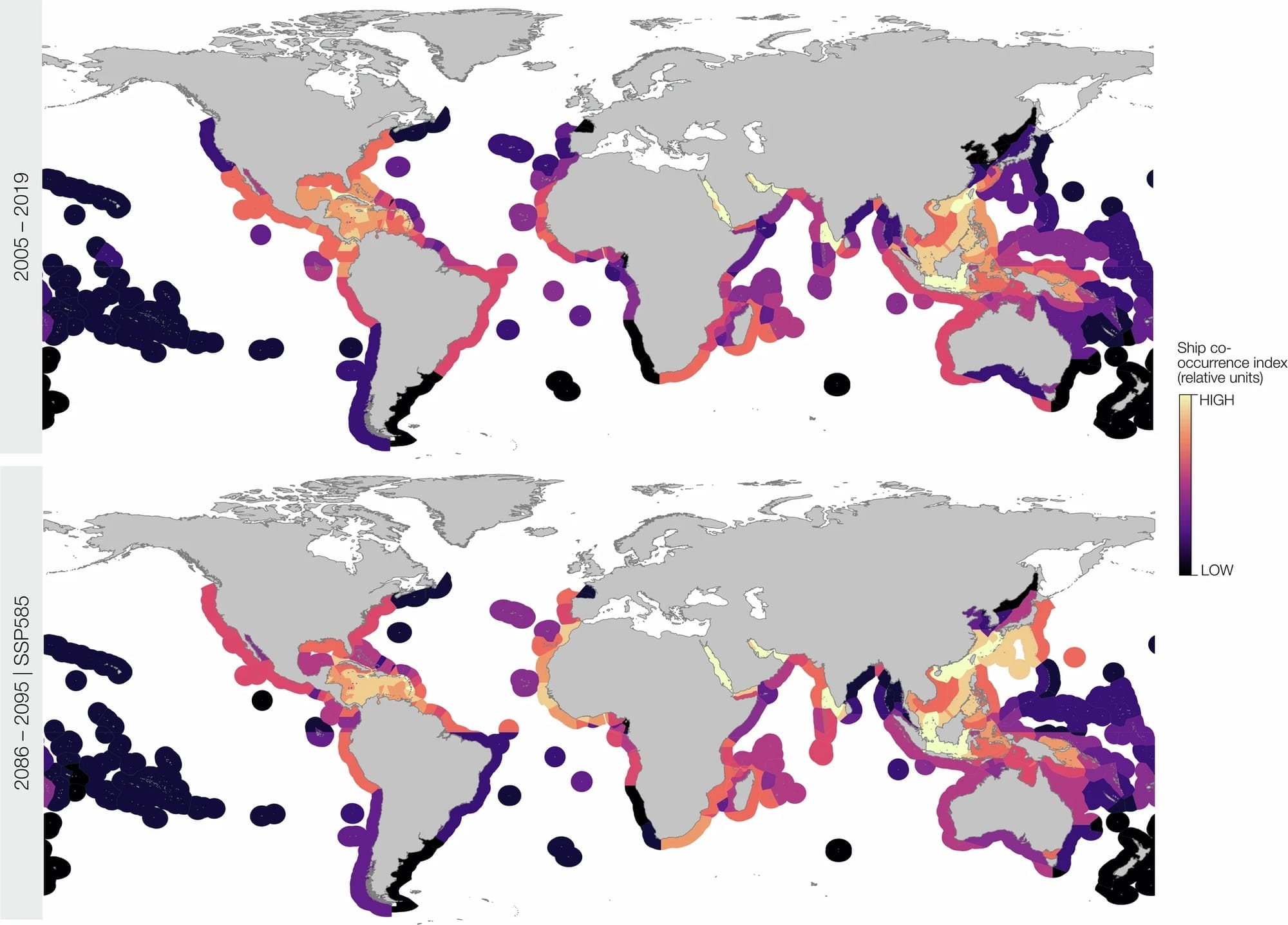New publication: Climate change may drive whale sharks into shipping lanes
Sequeira Lab lead Ana Sequeira has just been interviewed by ABC News for her recent contribution to a paper in Nature Climate Change on the impact that climate change has on the co-occurrence between whale sharks and ships.

Sequeira Lab lead Ana Sequeira has just been interviewed by ABC Pilbara/Carnarvon on her recent contribution to a paper in the reputable journal Nature Climate Change, titled “Climate-driven global redistribution of an ocean giant predicts increased threat from shipping”. This paper was led by the Marine Biological Association in the United Kingdom, with Dr Freya Womersley as the lead author and 57 co-authors.
The paper uses data collected from almost 350 satellite-tracked whale sharks to predict how the effect of climate change will bring whale sharks closer to busy shipping lanes by the end of the century. This increase in proximity between whale sharks and ships may lead to a much higher likelihood of fatal collisions between the animals and ships, posing a significant threat to this already Endangered species. The study highlights the need to include climate change in discussions around the management of endangered species, and the need for improved marine conservation strategies to conserve biodiversity.
Ana's radio interview was on the ABC Pilbara Local News (skip to 2 mins) and was also mentioned at the Pilbara Breakfast show (skip to 1:41 mins), where they focused on aspects that may be particularly relevant for the region, such as what will climate change impact be for the whale shark aggregation off Ningaloo Reef in Western Australia.
Many thanks to Freya for her great leadership and to all contributors!
